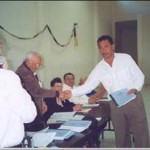
The citizens of Sabanagrande, a small rural community located approximately thirty minutes from the capital city of Honduras, recognize the importance of having a monitoring and oversight role for their municipal government.
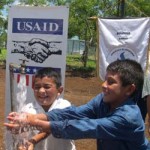
While water and sanitation systems are important to reducing infant mortality rates, they have been deficient throughout much of rural Honduras. But with support from USAID and local partners, they are being intro-duced into 98 Honduran communities from the north coast to the southern region.
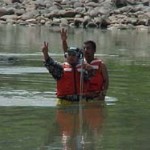
Honduras was not prepared for a major natural disaster like Hurricane Mitch in 1998. Officials were unable to gauge how quickly the rivers were rising from the constant rain, and thus did not know when to take the necessary steps to evacuate people into secure areas.
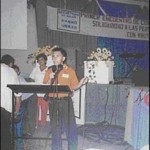
As in many countries, people living with HIV/AIDS in Honduras face challenges and obstacles as a result of their HIV-positive status. Puerto Cortés, the country’s leading port, is no exception, and in some cases HIV-positive people have even been denied medical and educational services.
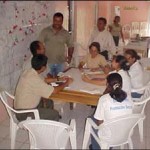
On the north coast of Honduras, residents still remember that fateful week in October 1998 when Hurricane Mitch caused massive destruction and left many without homes. Five years later, another storm hit with rain pouring down for three straight days on the northern towns of La Masica, Arizona, Esparta El Porvenir and La Ceiba - the third large








Comment
Make a general inquiry or suggest an improvement.